SUMMARY
PREVALENCE: Less common
ACTIVE PERIOD: Nocturnal & diurnal
KEY ID FEATURES: Light to dark brown shell, either solid black or yellow striped face, realtively small
BEHAVIOR: Actively hunt at night but also found during day in and around estuaries, ponds and slow moving low land rivers
SIZE: Small - 10-15cm
IUCN: EN - Endangered
QUICK ASSESSMENT 0-10
GALLERY
IMPORTANT: Most turtle species in Hong Kong are poached for both the Chinese Medicine and pet trades. You should never reveal location of encountered turtles on social media to reduce the ability of poachers to effectively hunt these extremely vunerable animals.
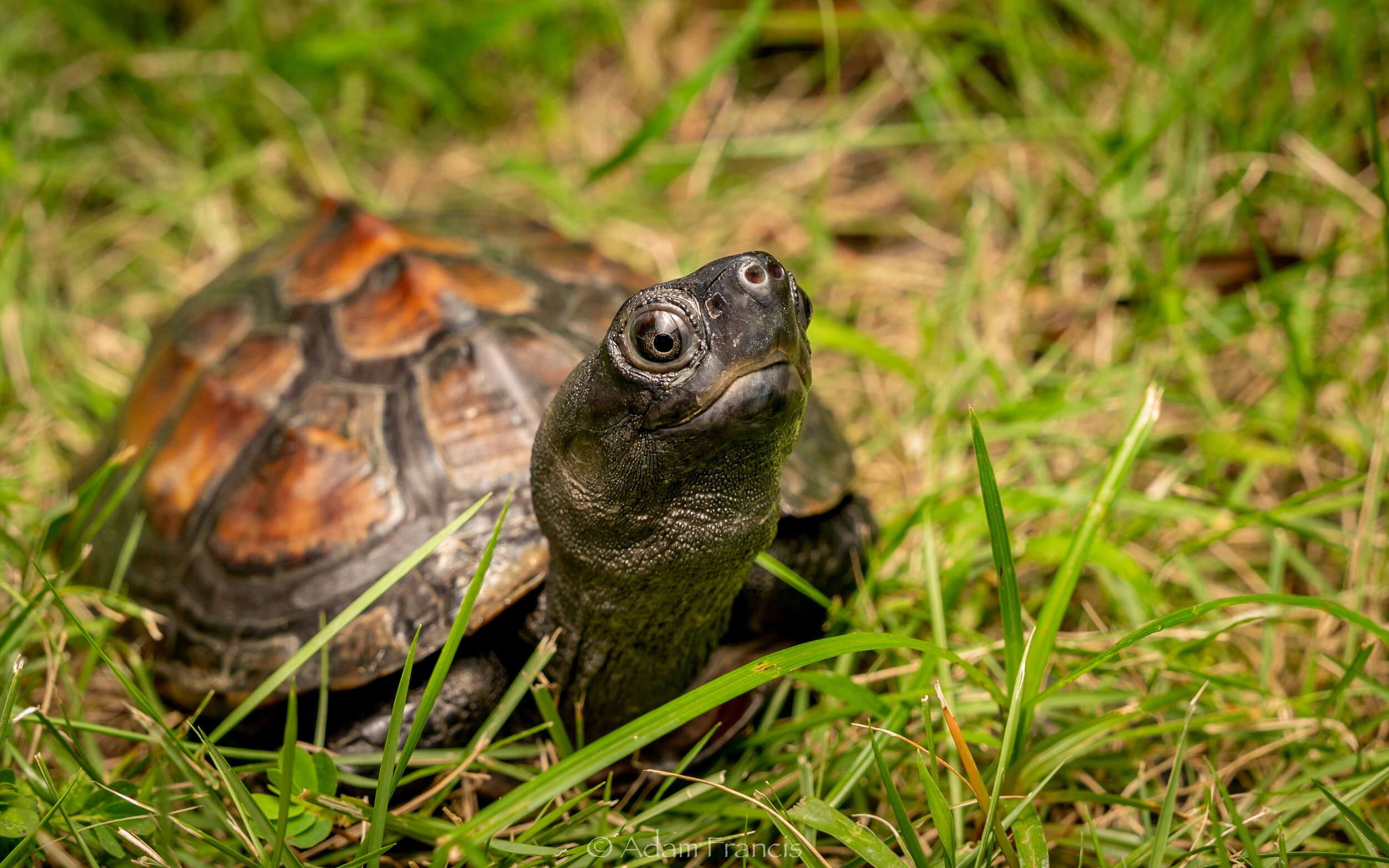
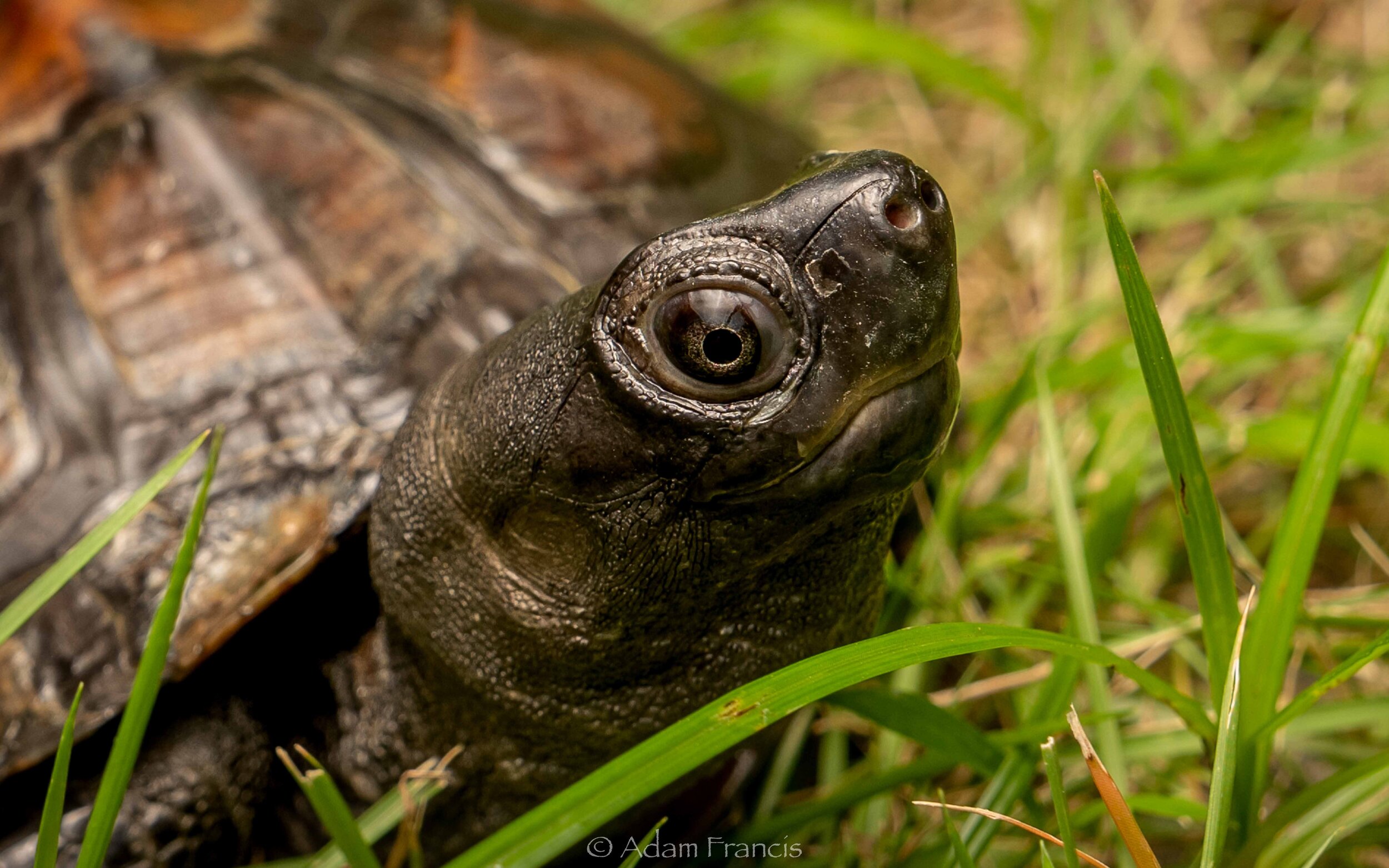
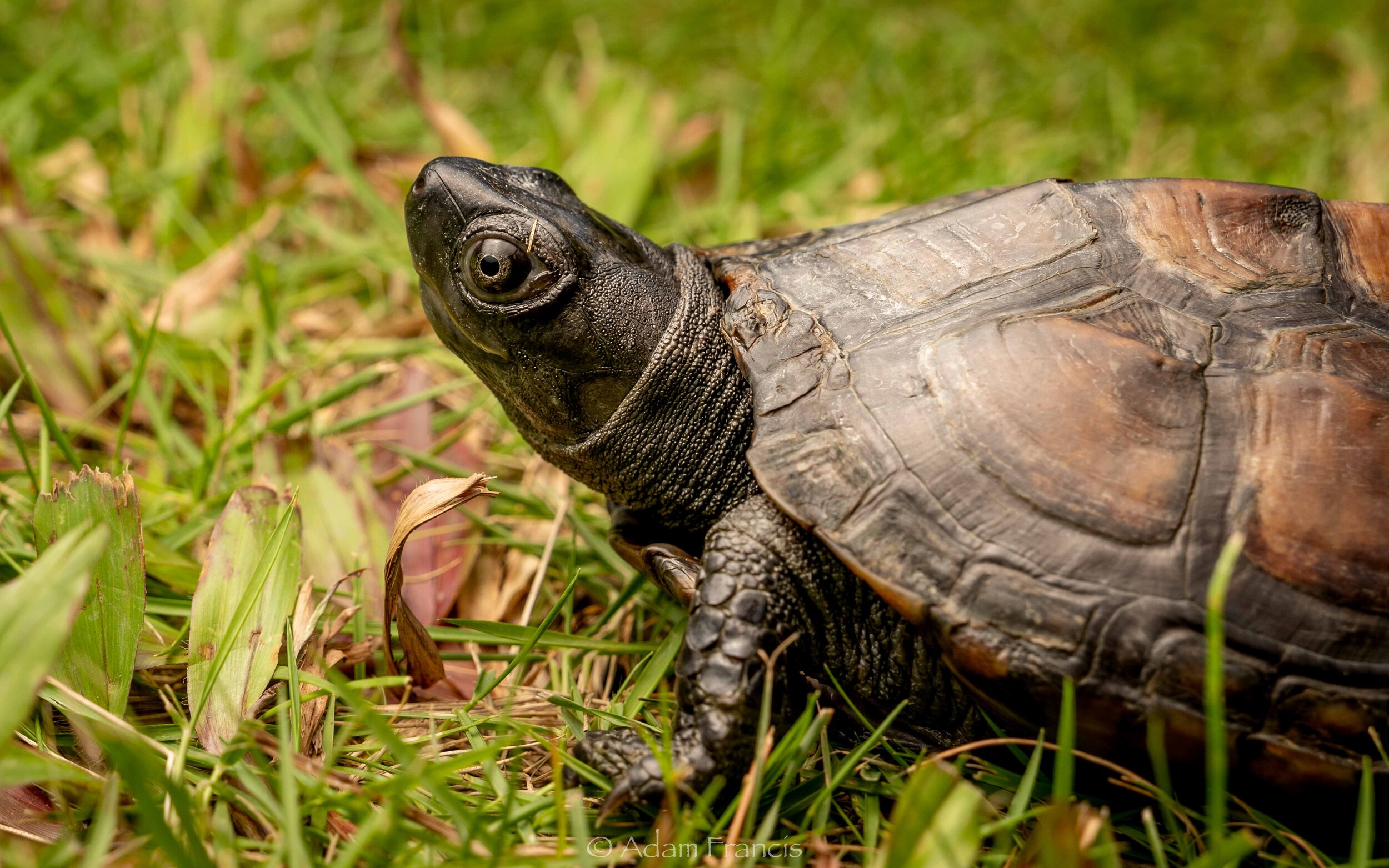
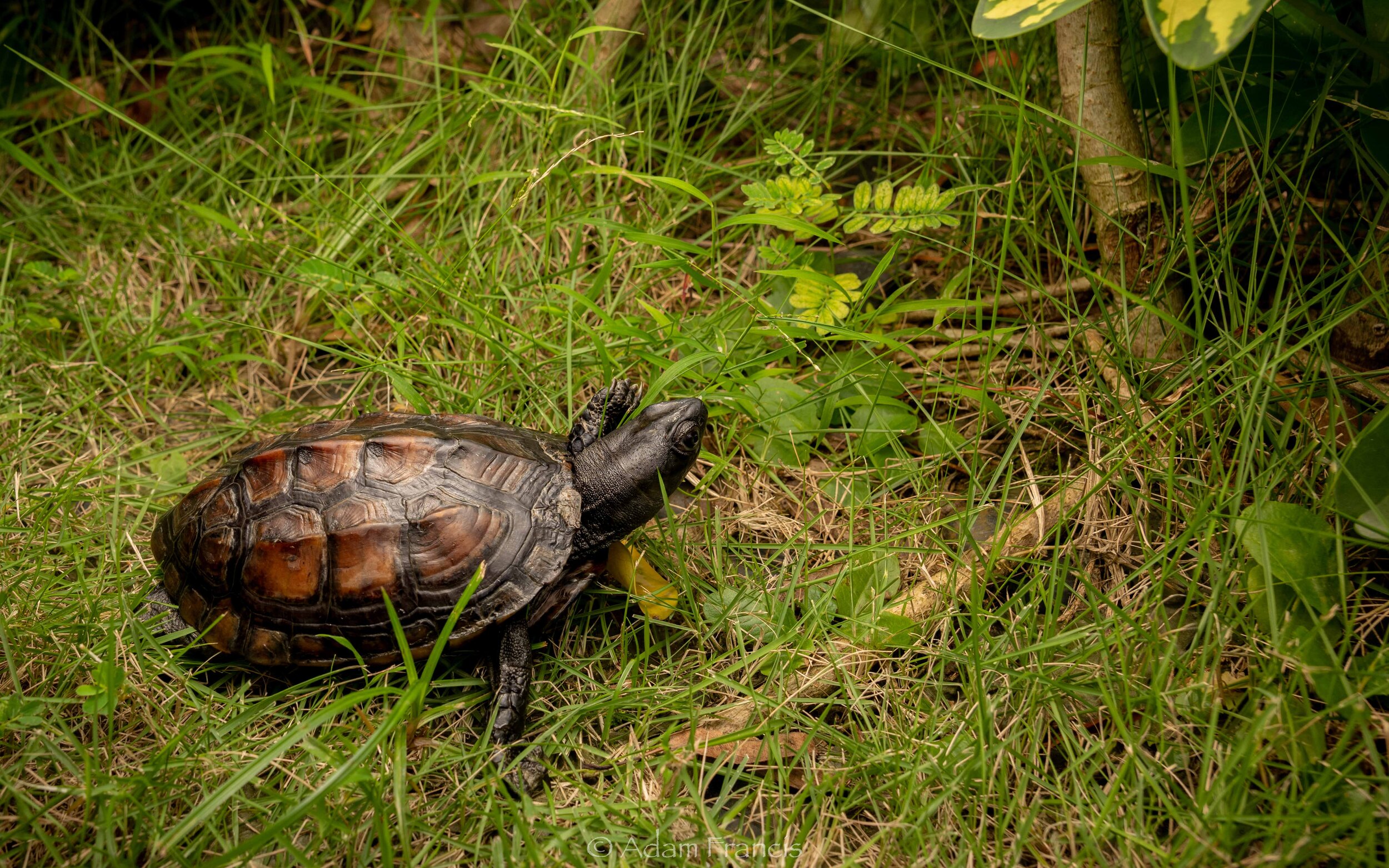
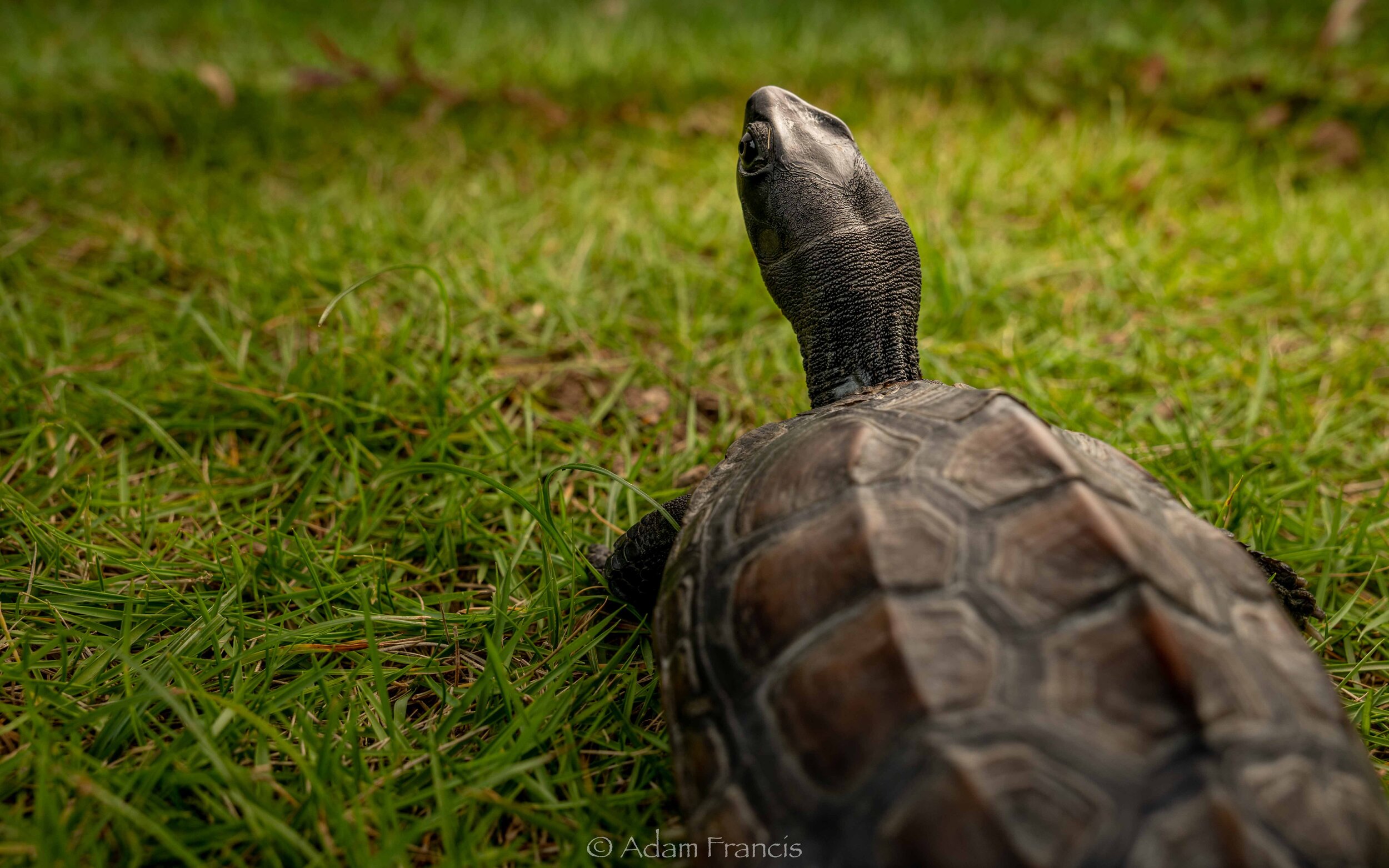
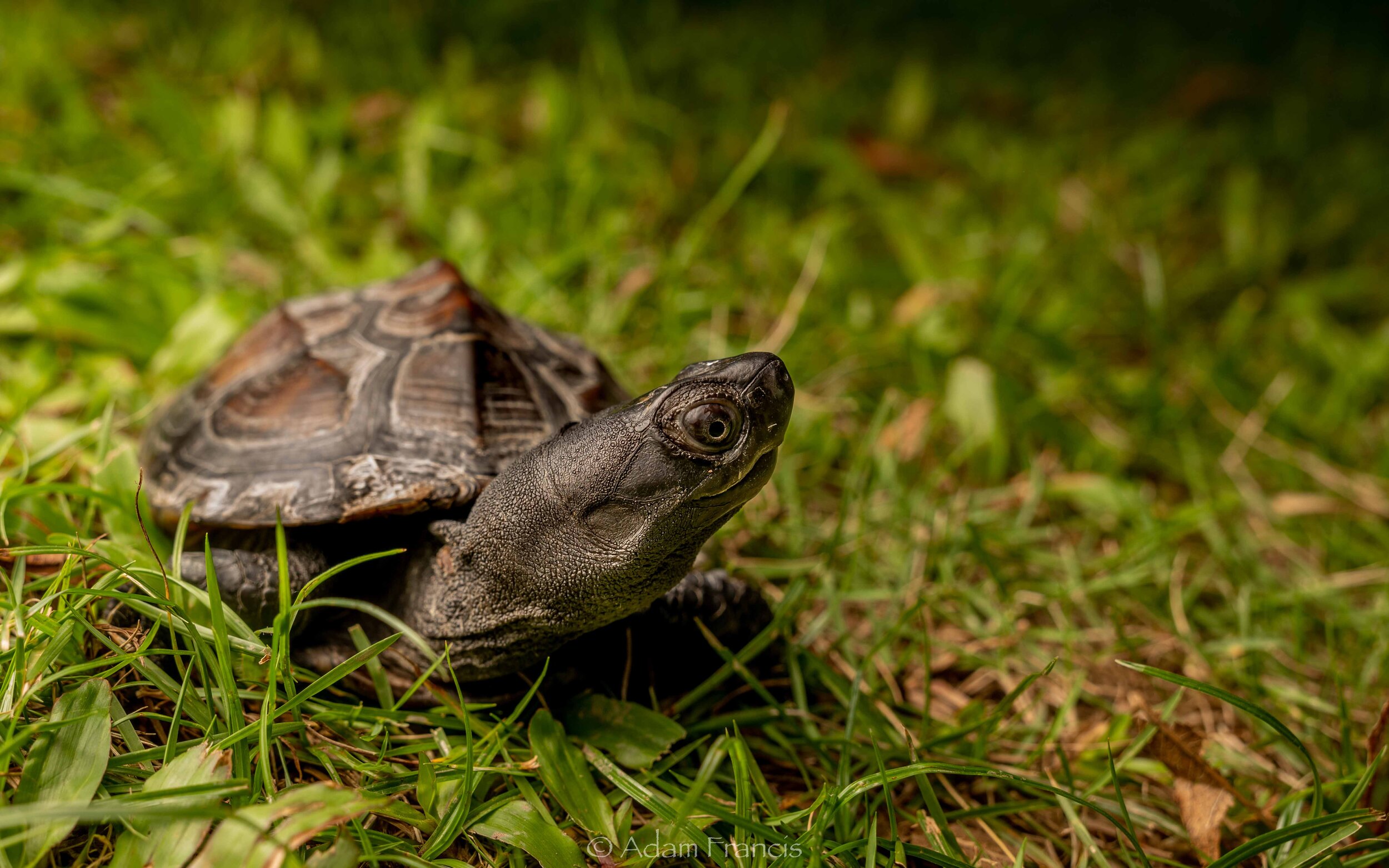
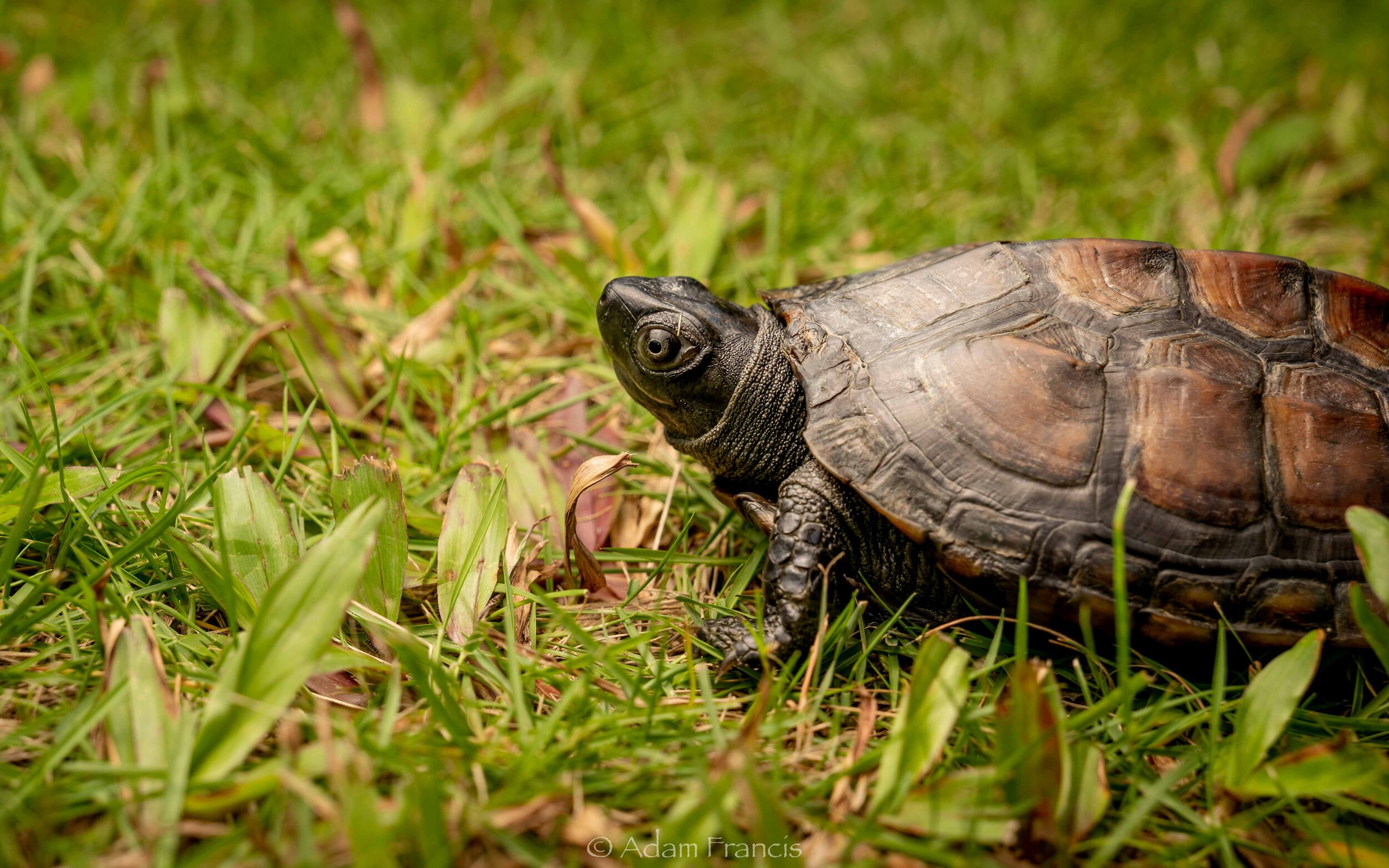
DESCRIPTION
Small in size when fully grown with shell roughly 15cm in length. This species is ether found with a light brown shell with black skin and yellow facial stripes, or in a melanistic variant with dark brown shell and solid black skin. The Reeves shell is rounded with three longitundinal ridges running the lenght of the back.
BEHAVIOR
Observed to be active at night and day, the Reeves’ Terrapin appears to prefer spending large portions of its time in slow moving bodies of water including estuaries, rivers and ponds at low elevation. They are adept at climbing rocks and navigating on land but are most at home in the water. Observed to eat small fish, tadpols, carrion and small fresh water crustations.
HABITAT
Populations of this species in the wild are more plentiful than some other local speices due to frequent releases of turtles purchased in the pet trade, however they are still listed as endangered. The authors have encountered them in ponds, slow moving rivers, lowland farms and tidal estuaries. Generally considered a low land speices.
POACHING
TURTLES ARE HEAVILY TRAFFICKED IN HONG KONG: Poachers, unfortunately are still very active in Hong Kong, regularly trapping rare turtle species to sell to the pet and Chinese Medicine trade. Turtles that end up sold into this trade are killed to become ingredients in traditional medicines. To avoid unintentionally aiding poachers, locations of turtles found in Hong Kong should never be shared on social media, and individuals should never be collected as pets given the potential for disruption to local breeding populations.

